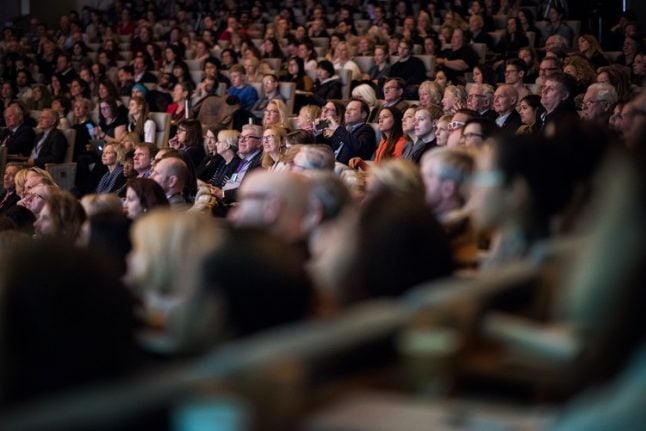How did you find out about the dialogue? Why did you want to participate?
I find out through Study in Sweden. It was very interesting; food and sustainability should be a topic of concern to all of us, regardless our field of work, research or study, because sadly we are “eating our planet”.
The actual food system is just perpetuating poverty, malnutrition and impacting climate change, putting so much pressure in our natural resources. I wanted to participate because one of my goals with the current master I’m doing in Strategic Communication is to find ways I can use communication as a powerful tool to make positive impacts in the world.
In this case raising awareness and designing strategies that influence consumers to start eating sustainable and become part of the solution.
What did you learn at the event? Can you name three things you found particularly interesting?
There’s a very close link between food, health and sustainability. Patterns of consumption are very important and they play a key role in this system, but to fix what is not working is a collective action.
One thing I found very interesting was the speech by Marion Nestle on the topic of Food Politics: who make food choices?
She had a very interesting approach about how society, governmental regulations and the market (publicity and junk food size portions), have strong influences in the individual consumption patterns. Also she recommended that in order to have a good diet we should: eat better, eat less and move more.
Also the talk with Caleb Harper about Eating digital: the fourth agricultural revolution was also mid blowing, he explained how in the MIT media lab they are already “printing” food. It is more complex than that, off course, they use a lot of data, micronutrients, chemical compounds and much more. But the fact that they are already doing it is like something out of a science fiction movie.
Caleb Harper. Photo: Niklas Elmehed/Nobel Media AB
Another interesting part was at the end the Laureate Panel about The Flavour of Creativity, with six Nobel Laureates. They shared with us how to be creative in today’s world. And of the best advice was: let silence happen so creativity has space to come up.
The six Nobel Laureates. Photo: Niklas Elmehed/Nobel Media AB
What was your favorite part?
It’s very hard to choose just one because everything had something that made it special, from the panels to the moderator. But one of the very nice things was when Patty Smith read a piece, after the last break, and then started singing for the audience. It was very moving.
Another thing I loved about this event was all the people I met. I have to say that I met so many wonderful people from many different fields that I know we may even collaborate in some projects together in the future.
The event was largely about food – what was the lunch that was served? Did you like it and did it seem to match the theme and thoughts about the future of food?
Delicious! Very healthy, colorful and diverse. And off course as Swedish as it can get -coffee and specialkanelbullar were also served in the breaks.
How did it feel to hear from Nobel prize laureates?
Amazing, you’re learning from change makers, first hand knowledge, inspiring people who have already left their mark on the world.
In my case I also had the opportunity to meet and talk for a few minutes with Muhammad Yunus, 2006 Nobel Peace Laureate, the father of social business, economist and civil society leader. A brilliant mind who has done great things for humanity!
Did the event change your views in any way?
It reinforces in me the importance of not settling; there’re so many things going on in the world right now that we can’t just sit back and relax. We have the responsibility to actually go out there and make things happen.
Once in a while we need to get out of the classroom and get in touch with this kind of events that are like a pat on the shoulder that tells you: keep working on those things in which you believe in, give your best and don’t stop because the world needs you.
Would you recommend the Nobel Week Dialogue to others in the future? Why or why not?
Yes, is a great opportunity to learn from the best, the people that have make a huge impact in the world.


 Please whitelist us to continue reading.
Please whitelist us to continue reading.